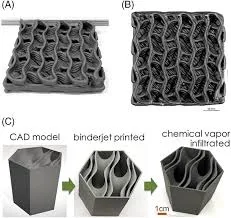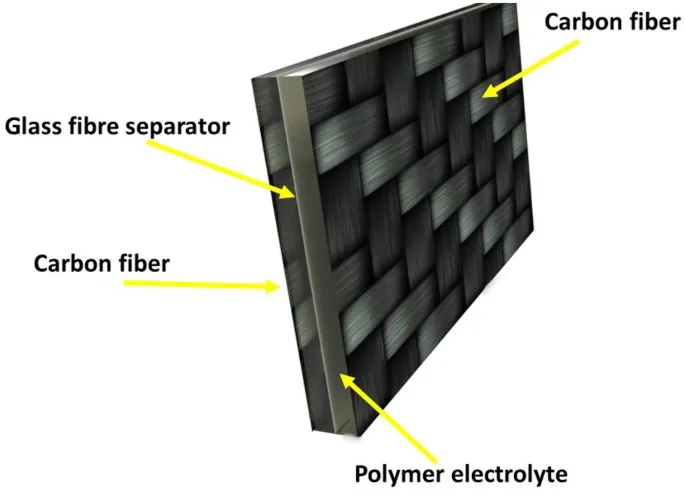Ceramic Composites in Elite Dangerous: The Ultimate Guide
In the vast, unforgiving expanse of the Elite Dangerous universe, survival hinges on a commander's ability to optimize their ship for any scenario. Among the myriad of materials and components available, Ceramic Composites stand out as a fundamental resource for enhancing a vessel's defensive capabilities. This guide delves deep into the nature, acquisition, and strategic application of Ceramic Composites, providing commanders with the knowledge needed to fortify their ships against the dangers of the void.
What Are Ceramic Composites?
Ceramic Composites are advanced materials classified as Manufactured Materials in Elite Dangerous. They are engineered by combining ceramic matrices with reinforcing fibers, resulting in a material that offers an exceptional balance of low weight and high thermal resistance. In the context of starship engineering, these composites are primarily used in the synthesis of various hull reinforcement packages and other defensive upgrades.
Their primary function is to augment a ship's hull strength, effectively increasing its hit points and ability to withstand kinetic, thermal, and explosive damage. For any pilot engaging in combat, from bounty hunting to Conflict Zones, a robust hull is not a luxury—it is a necessity.

Acquiring Ceramic Composites
Ceramic Composites are a relatively common find, but knowing where to look can significantly streamline the gathering process. They can be obtained through several methods:
1. Destroying Enemy Ships
The most straightforward method of acquisition is by engaging in combat. Destroying ships belonging to various factions, especially in Resource Extraction Sites (RES) or Conflict Zones, will often yield material drops, including Ceramic Composites. The grade and quantity of materials dropped can be influenced by the size and rank of the destroyed vessel.
2. Scanning Ship Wrecks and Debris Fields
After a battle, space is often littered with wreckage. Using a Detailed Surface Scanner or simply flying close to debris fields can reveal collectible materials. Signal Sources, particularly "High-Grade Emissions," can also be lucrative, though they are less common.

3. Mission Rewards
Many missions offered by station factions, especially those involving combat or salvage operations, will reward commanders with materials. Ceramic Composites are frequently included in the material reward options.
4. Material Traders
For commanders with an excess of other manufactured materials, Material Traders located at various stations offer a convenient solution. You can trade other materials of the same grade (or a combination of grades) for Ceramic Composites, allowing for targeted acquisition.
Primary Uses and Engineering Applications
The true value of Ceramic Composites is realized in their application. They are a key component in several critical engineering blueprints and synthesis recipes.
| Application | Required Quantity | Effect |
|---|---|---|
| Heavy Duty Hull Reinforcement Package Engineering | Varies by grade | Significantly increases module hull boost. |
| Lightweight Hull Reinforcement Package Engineering | Varies by grade | Increases hull boost with minimal mass addition. |
| Synthesis of Basic/Standard/Premium Hull Repair | 2/4/6 units | Allows in-field repair of ship hull integrity. |
| Synthesis of SRV Hull Repair | 2 units | Repairs the hull of an SRV on planetary surfaces. |
Engineering a Hull Reinforcement Package with a Heavy Duty modification, for instance, can dramatically increase a ship's survivability. The use of Ceramic Composites in this process is essential for creating a layered defense system that can absorb tremendous punishment.

Strategic Importance for Commanders
Understanding and utilizing Ceramic Composites is a mark of a seasoned commander. For pilots who frequent hazardous environments, the ability to synthesize hull repairs can mean the difference between reaching a station safely and becoming another piece of cosmic debris. In PvP (Player vs. Player) combat, where every percentage of hull integrity counts, a ship fortified with composites-engineered reinforcements holds a significant advantage.
Furthermore, for explorers venturing into the unknown, far from the safety of the bubble, the synthesis of hull repair limpets using Ceramic Composites is a critical contingency plan for accidental planetary collisions or encounters with hostile non-human entities.
Inventory Management Tip
As a Grade 1 manufactured material, Ceramic Composites have a relatively low data density, meaning you can carry a large quantity without significantly impacting your material storage capacity. It is advisable to maintain a healthy stockpile (e.g., 50-100 units) to ensure you are always prepared for engineering and synthesis needs.
Conclusion
Ceramic Composites may seem like a simple, common material, but their role in shaping a ship's defensive profile is profound. From the front lines of a galactic war to the silent depths of unexplored space, these composites provide the foundational strength that every commander relies on. By mastering their acquisition and application, you ensure that your vessel is not just a tool for travel, but a resilient fortress capable of enduring the greatest challenges the galaxy can muster.


